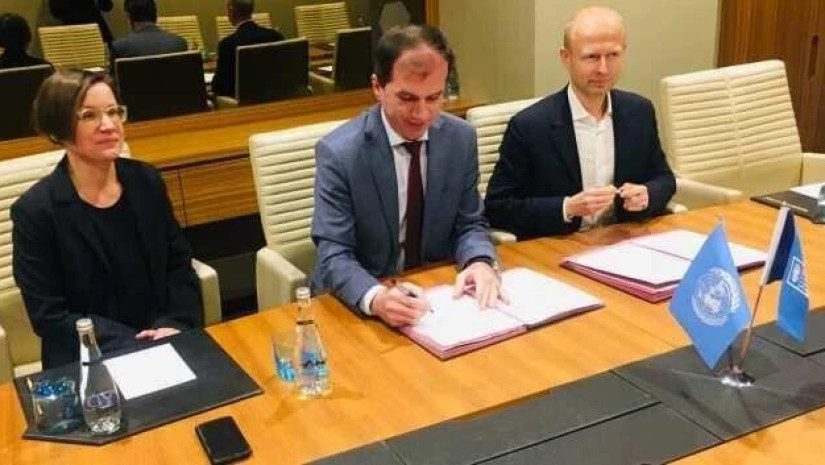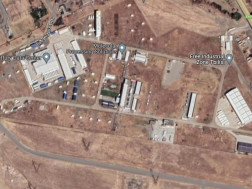The United Nations Development Programme (UNDP) in Kazakhstan will be joining efforts with the Bitfury Group, a leading emerging technologies company, to preserve and replenish large swathes of forest land across Kazakhstan.
As part of its Biodiversity Finance Initiative (BIOFIN), UNDP and Bitfury will work to increase forest areas and enhance forest management practices, as well as raise public awareness of climate change and offset carbon emissions attributable to the company by more than 100 percent.
The project will aim to provide a model of how to offset carbon through the protection of forests, flora and fauna. It will also guide Kazakhstan’s legislation in this regard – paving the way for scaling up offsetting initiatives over the next decade – and raise public awareness on how to reduce emissions.
BIOFIN is helping countries around the world to measure their level of spending on biodiversity, evaluate how much financing is needed to accomplish their goals and advise on how to mobilize new funding from a diversity of sources.
“This is a first in terms of carbon offsetting for Kazakhstan and we hope it will create a foundation for accelerating the country’s efforts to reduce its carbon footprint in partnership with the private sector. These are practical solutions that will require institutionalization and scale-up,” said Yakup Beris, UNDP Resident Representative in Kazakhstan.
“We fully support UNDP’s sustainable development goals to protect our planet, and we are inspired by Kazakhstan’s national initiative to create offset mechanisms to neutralize greenhouse gas emissions,” said Valerijs Vavilovs, CEO, and co-founder of Bitfury.
Kazakhstan currently has 29 million hectares of forests but much of that land is endangered as a result of illegal logging, forest fires, and land use changes.
The country says it will aim to meet 50 percent of its energy needs from alternative and renewable sources by the middle of the century. With support from the UN, Kazakhstan already achieved a 45 percent annual reduction in energy consumption for heating pilot municipal buildings over the past five years.
The Paris Agreement and the UN Sustainable Development Goals (SDG) state that a full transition to a sustainable, low-carbon and climate-resilient world will require significant investment and innovation both by the state and the private sector.
Kazakhstan ratified the Paris Agreement in 2016 and pledged to reduce greenhouse gas emissions by 15% by 2030 through mobilizing innovative solutions with the participation of the private sector.
According to experts, the total volume of forest carbon in Kazakhstan is estimated at more than 718.3 million tons of CO2 equivalent. The increase of forest cover from 4.6% to 5% will help increase carbon absorption by forests additionally to 2.9 million tons of CO2 equivalent annually. Furthermore, healthy forests provide essential services including water regulation, biodiversity, food, medicines and ecotourism.
UNDP is working to help the government and partners in Kazakhstan achieve a quick transition to renewable energy. For instance, the agency created a solar energy atlas and is working with the Global Environment Facility (GEF) to boost investments across the country in utility-scale and small-scale renewable energy.
Source - UNDP















